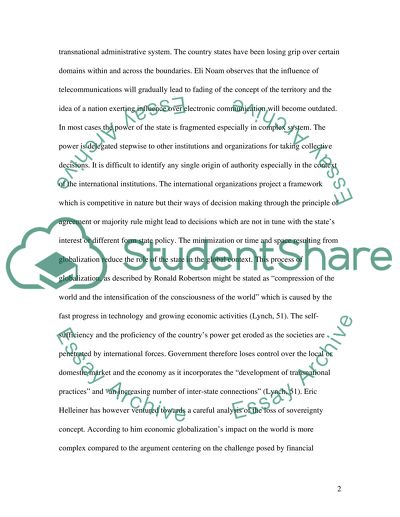Cite this document
(“Globalization and state sovereignty Essay Example | Topics and Well Written Essays - 1500 words”, n.d.)
Retrieved from https://studentshare.org/environmental-studies/1407205-globalization-and-state-sovereignty
Retrieved from https://studentshare.org/environmental-studies/1407205-globalization-and-state-sovereignty
(Globalization and State Sovereignty Essay Example | Topics and Well Written Essays - 1500 Words)
https://studentshare.org/environmental-studies/1407205-globalization-and-state-sovereignty.
https://studentshare.org/environmental-studies/1407205-globalization-and-state-sovereignty.
“Globalization and State Sovereignty Essay Example | Topics and Well Written Essays - 1500 Words”, n.d. https://studentshare.org/environmental-studies/1407205-globalization-and-state-sovereignty.


